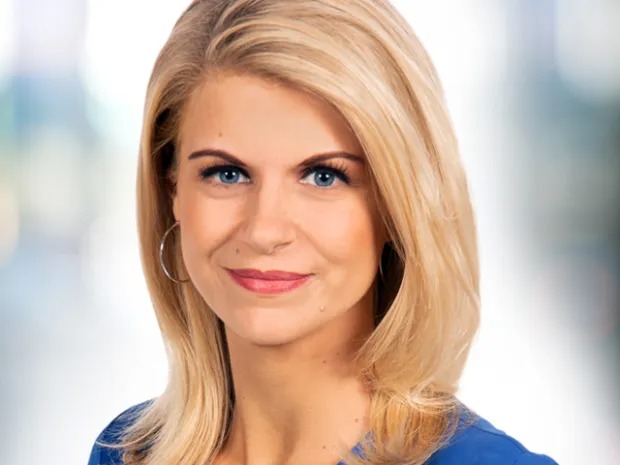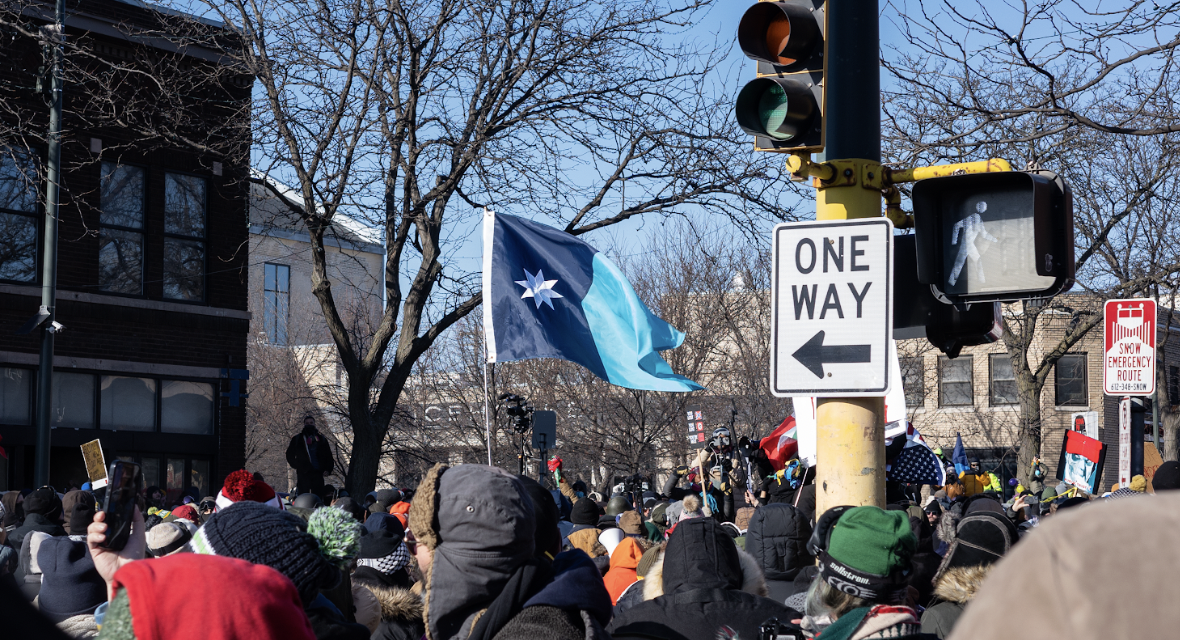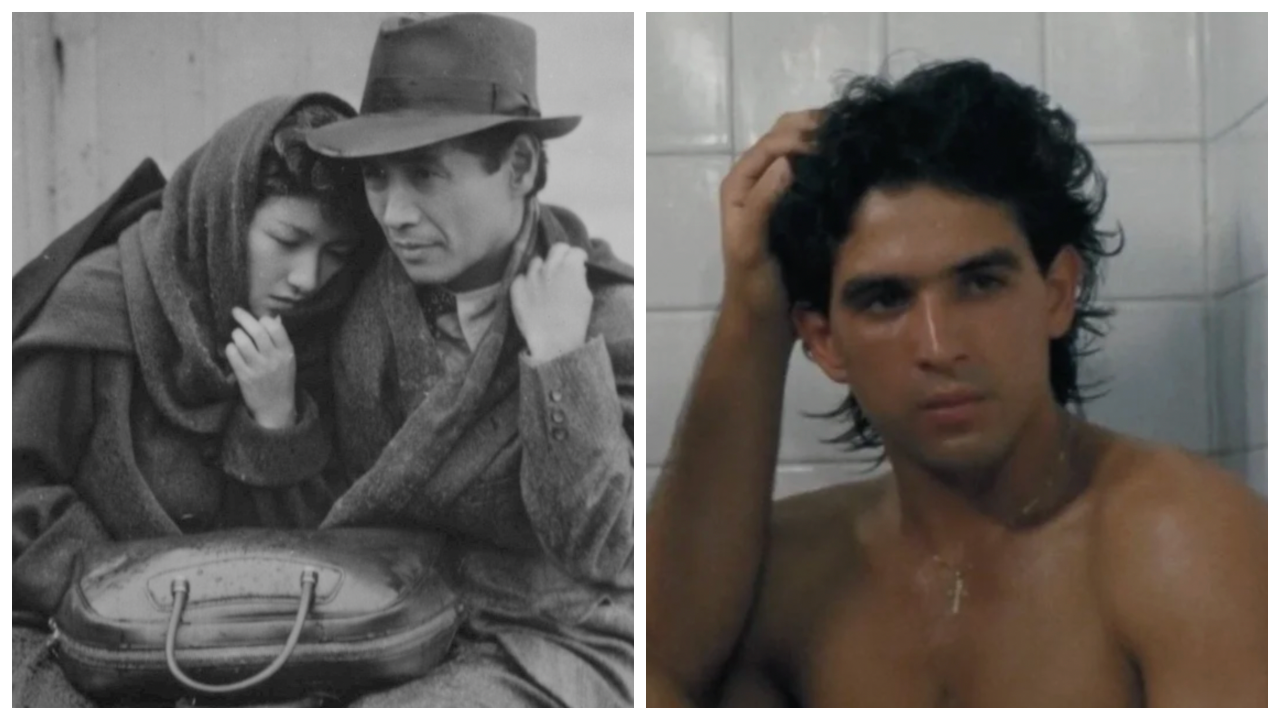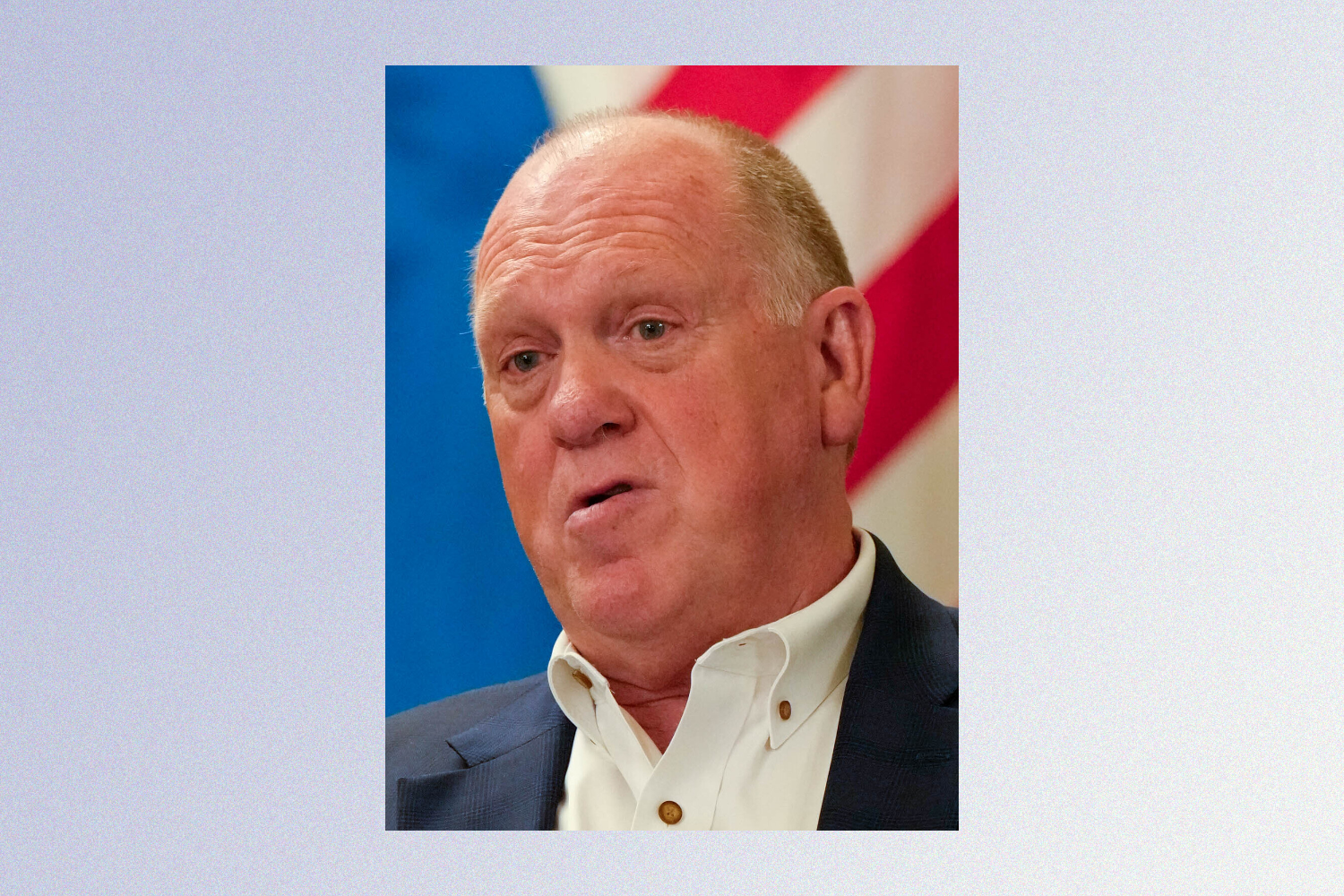I am not the target audience for local journalist Liz Collin’s debut book, They’re Lying: The Media, the Left, and the Death of George Floyd. I read it because I’m a longtime leftie Minneapolis resident and I take perverse enjoyment in the opinions of suburbanites who denigrate the city as a burned-up, carjacked wasteland. As a professionally unsuccessful former classmate of Collin, I have followed her career with interest, envy, and, most recently, schadenfreude. I wanted an explanation of how Collin’s marriage to Bob Kroll, former union president of the Police Officers Federation of Minneapolis and mustachioed chthonic avatar of police brutality, downgraded her career from WCCO darling to Alpha News right-wing shill. Plus, books from low-rent vanity publishers are funny and make me feel grammatically superior to their authors.
Collin’s 261-page book begins when she and Kroll return from a weekend out of town, oblivious to the events of May 25, 2020. They are quickly gobsmacked and astounded by what they consider to be an outsized reaction to bystander video of George Floyd pinned to Chicago Avenue by Minneapolis Police Department Officer Derek Chauvin’s knee. Collin’s incredulity lingers throughout the entire book, as she cannot or will not recognize the significance of Floyd’s murder. She refuses to see Floyd as a synecdoche for victims of an unjust and brutal culture of policing. Instead, she turns him into a caricature, a dangerous, drug-addicted urban villain.
Collin does acknowledge that the video “looks bad.” But she refutes the optics with dubious arguments that accuse all of the major players, from former MPD Chief Medaria Arradondo, Minneapolis Mayor Jacob Frey, Hennepin County Attorney Mike Freeman, and Attorney General Keith Ellison, of engaging in a vast left-wing conspiracy to victimize the MPD officers who were called to Cup Foods. Collin posits that “politicians were creating the illusion of accountability without holding themselves accountable” and that they conspired to convict Chauvin and the three other officers without due process. She tries to support this thesis with an analysis of Maximal Restraint Technique training materials and a close reading of Floyd’s autopsy and subsequent autopsy reports. The most frustrating piece is Collin’s hammer-headed insistence that a “mixed race group” of police officers could not possibly engage in racist violence. This is a “but I voted for Obama!” type of racism denial, as if J. Alexander Kueng’s presence magically absolves the MPD’s well-documented history racially discriminatory practices.
Occasionally, the timeline jumps backward 30 years to arcane MPD stories which Collin intends to connect with the 2020-21 narrative and support her conspiracy claims. But the only common thread linking these incongruous 20th century flashbacks with the rest of the book is just that “Bob was there.” In my imagination, the writing process looks like Collin clacking away at her computer with Kroll standing behind her, tapping her shoulder, spraying moist bits of spearmint Kodiak across her keyboard as he goads, "Lizzie, ya gotta tell 'em about the time I took down the Vice Lords!"
Collin centers herself as a victim of “the media and the Left,” taking particular umbrage at her former employer, accusing WCCO’s management of having a liberal political agenda. She blasts WCCO for requiring reporters to interview racially diverse subjects, for issuing a disclaimer about her marriage on crime and policing stories, and for taking her off the anchor desk. She writes, “I was blacklisted. I went from being a familiar face on WCCO-TV down to being on the news barely a minute a day.”
The victim narrative continues at protests outside of the downtown WCCO building. “[They] started insulting me personally—for the color of my hair and skin,” Collin writes. She portrays Kroll as a maligned target who suffers online burns from bullies like former MPD Police Chief Janee Harteau and Twitter troll @BillyAn23338604. After Kroll and Collin’s address is doxxed, the “cancel culture vultures” protest outside their home in Hugo, Minnesota. Activist and attorney Nekima Levy Armstrong “segregated people” and had “Blacks” (yes, that is Collin’s actual word choice) kneel in front of a flagpole on Collin’s front lawn. Chauvin, of course, positions himself yet another victim: “When Derek Chauvin heard about Arradondo’s public indictment," Collin writes, "he said, ‘That’s when I knew they were stacking the deck against me.’”
The reverse racism claims are gross but predictable. More troubling is Collin’s unwillingness to acknowledge racism at all. She writes “systemic police racism” just like that: ensconced in quotation marks, mocking the phrase Joey Tribbiani-style. I understand where she's coming from because I grew up two years ahead of Collin, in Worthington, the small, southwestern Minnesota town where she started a neighborhood newspaper as a kid.
Back in the 1990s, when Collin and I both exercised in the basement of the old downtown YMCA and served Tremendous Twelve and Granny's Country Omelet breakfast orders to the Sunday morning after-church crowds at Perkins, Worthington was an ethnically diverse town. But it was also a consequence-free setting for casual racism. This was a point in time when a FUBU brand Love Sees No Color T-shirt could effectively declare its wearer to be free of bigotry. Very few words or actions were considered racist, short of calling someone an ethnic slur while punching them in the face. Incredibly, in 1998, half of the Worthington High School students cast in the spring musical performed in blackface. Even more wild? No one objected!
But just because no one got in trouble for racist stage-makeup or behaviors back then doesn’t mean that they weren’t racist. Concepts like double consciousness, code switching, cultural appropriation, unconscious bias, systemic racism—these are all nuanced distinctions that had to be picked up while fulfilling college credits, or while attending workplace sensitivity training, or just by being a literate person who’s heard about social injustice. Collin has not evolved beyond the '90s dichotomy of racist or not-racist. For Collin, as long as there is no historical precedent and no prior consequences for racist behavior, then racism isn’t a problem. She seems to lack the intellectual curiosity to dig in to what Floyd’s murder symbolized. Anyone who lumps people together as “Blacks” in 2022 and who thinks that a couple of police officers of color can negate a whole racist system of policing has a long way to go on their anti-racist journey. Collin is still parked in her Hugo driveway.
I have to admit that Collin’s journalism is competent, dogged, and detailed. I expected dubious research and, while Collin sometimes footnotes sources that blur the boundaries of credibility (New York Post, Alpha News, Heritage Foundation, @crimewatchmpls), most of the citations are sound. One could also take serious issue with her sourcing, which includes: convicted murderer Chauvin, plus the convicted murderer's mother Carolyn Pawlenty, imprisoned partner Thomas Lane, and failed defense attorney Eric Nelson, among other uniformly pro-cop voices. Collin’s writing gets lazy when she dumps phrases like “who knows how many” and “for whatever reason” in front of sentences. Several speeches and interviews are included verbatim, instead of accompanying analysis with pull quotes, and those sections function as filler.
Overall, the book met my expectations. I hoped for grammatical idiosyncrasies and They’re Lying delivered. Collin credits Dr. JC Chaix for his proofreading work, which includes unconventional spelling, inconsistent capitalization, unnecessary commas between subjects and verbs, and a complete disregard for a uniform style guide. I don’t recommend buying They’re Lying, but I do recommend looking up Chaix’s bizarre author biography on Amazon.
At times I actually enjoyed the narrative, especially when Collin skewers Mayor Frey’s vanity. She recalls how he flailed during the protests and riots and reminds the reader that Frey was, is now, and ever shall be, as long as he is in office, in sole charge of the MPD. I shared Collin’s disgust with the leaders, past and present, who failed to reform policing before and after Floyd’s murder, who held nothingburger press conferences, who promised transformational change and then approved a new union contract and $7,000 bonuses to MPD officers.
Surprisingly, They're Lying gave me hope! If both Collin, hawker of MAGA propaganda, and I, avowed member of “the Left,” can agree that crime and policing in Minneapolis are worse after five years of Frey's blustery, ineffective leadership, then there is a tiny bright spot cresting over the 2024 election horizon.







